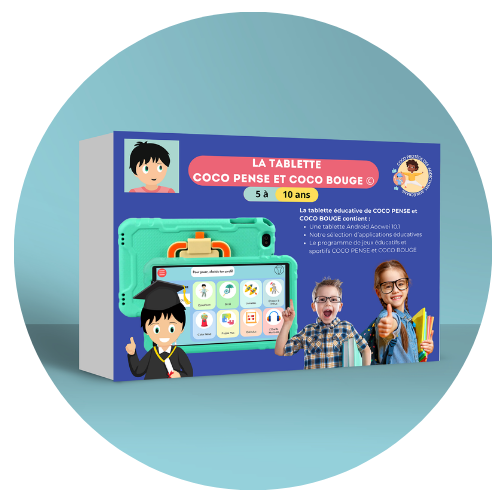Autism Spectrum Disorder (ASD) is a complex neurodevelopmental condition that affects individuals in various ways, particularly in communication, social interaction, and behavior. As we delve into the world of autism, we recognize that each person on the spectrum has unique strengths and challenges. For many autistic children, speech and language development can be significantly impacted, leading to difficulties in expressing thoughts, understanding language, and engaging in conversations.
This is where speech therapy plays a crucial role. Speech therapists work diligently to create tailored interventions that help these children improve their communication skills, enabling them to express their needs and connect with others more effectively. In our journey to understand autism and its implications for speech therapy, we also acknowledge the importance of early intervention.
The earlier a child receives support, the better their chances of developing effective communication skills. Speech therapy for autistic children often involves a combination of techniques, including play-based activities, visual supports, and structured learning environments. By fostering a supportive atmosphere, speech therapists can help children build confidence in their communication abilities.
As we explore the intersection of autism and speech therapy, we begin to see how innovative tools, such as cognitive apps, can enhance traditional therapeutic approaches and provide additional avenues for growth.
Importance of Cognitive Apps in Speech Therapy for Autistic Children
In recent years, cognitive apps have emerged as valuable resources in the realm of speech therapy for autistic children. These digital tools offer interactive and engaging ways to practice communication skills, making learning more enjoyable and accessible. As we embrace technology in our therapeutic practices, we recognize that cognitive apps can complement traditional methods by providing personalized experiences tailored to each child’s unique needs.
By incorporating these apps into our speech therapy sessions, we can create a more dynamic learning environment that captures the attention of our young learners. Moreover, cognitive apps can serve as a bridge between therapy sessions and everyday life. They allow children to practice their skills in a safe and controlled setting while also encouraging them to generalize what they learn to real-world situations.
This is particularly important for autistic children, who may struggle with transferring skills from one context to another. By utilizing cognitive apps that focus on communication and social interaction, we can empower these children to develop their abilities in a way that feels natural and engaging. As we continue to explore the potential of cognitive apps in speech therapy, we are excited about the possibilities they bring to enhance the learning experience for autistic children.
Improving Communication Skills with Cognitive Apps

Cognitive apps designed for speech therapy can significantly improve communication skills among autistic children by providing targeted exercises that focus on various aspects of language development. These apps often include features such as vocabulary building, sentence formation, and comprehension activities that cater to different learning styles. As we engage with these digital tools, we find that they offer immediate feedback and reinforcement, which can be incredibly motivating for young learners.
The interactive nature of these apps encourages children to practice their skills repeatedly, leading to greater retention and mastery over time. Additionally, cognitive apps can help bridge the gap between verbal and non-verbal communication. Many autistic children may struggle with expressive language but excel in visual learning.
By incorporating visual supports such as images, symbols, and animations into the app’s design, we can create a more inclusive learning experience that resonates with these children. This approach not only enhances their understanding of language but also fosters a sense of accomplishment as they successfully navigate through various communication tasks. As we witness the positive impact of cognitive apps on communication skills, we become increasingly aware of their potential to transform the therapeutic landscape for autistic children.
Enhancing Social Interaction through Cognitive Apps
Social interaction is a critical component of effective communication, yet many autistic children face challenges in this area. Cognitive apps can play a pivotal role in enhancing social skills by providing structured opportunities for practice in a safe environment. Through interactive scenarios and role-playing activities, these apps allow children to explore social cues, understand emotions, and develop appropriate responses in various situations.
As we engage with these digital tools, we find that they not only teach essential social skills but also promote empathy and understanding among peers. Furthermore, cognitive apps can facilitate peer interactions by incorporating multiplayer features or collaborative tasks. This encourages children to work together towards common goals while practicing their social skills in real-time.
By fostering connections with others through technology, we can help autistic children build meaningful relationships and develop a sense of belonging within their communities. As we continue to explore the potential of cognitive apps in enhancing social interaction, we are inspired by the positive changes we witness in the lives of these children as they gain confidence in their ability to connect with others.
Developing Cognitive and Motor Skills with Cognitive Apps
In addition to improving communication and social interaction skills, cognitive apps can also support the development of cognitive and motor skills among autistic children. Many of these apps incorporate games and activities that challenge users to think critically, solve problems, and engage in fine motor tasks. As we explore these features together with our young learners, we discover that they not only enhance cognitive abilities but also promote hand-eye coordination and dexterity through interactive touch-based activities.
Moreover, the gamification aspect of cognitive apps makes learning fun and engaging for autistic children. By turning therapeutic exercises into enjoyable games, we can motivate them to practice their skills more frequently and with greater enthusiasm. This playful approach encourages persistence and resilience as they navigate challenges within the app.
As we witness the growth of cognitive and motor skills through these digital tools, we become increasingly aware of their potential to create well-rounded learning experiences that address multiple developmental areas simultaneously.
Tailoring Cognitive Apps to Individual Needs of Autistic Children

One of the most notable benefits of using cognitive apps in therapy for autistic children is their ability to be tailored to the individual needs of each child. Autism Spectrum Disorder (ASD) presents a wide range of challenges and strengths that vary from child to child. Cognitive apps can be customized to accommodate these differences, offering a personalized approach to learning and skill development.
1. Customizable Settings for Personalized Learning
Many cognitive apps provide settings that therapists and caregivers can adjust according to the specific needs of the child.
- Adjustable Difficulty Levels: Apps allow for modification of difficulty levels, ensuring that the exercises are neither too easy nor too overwhelming. This helps maintain the child’s motivation while providing an appropriate challenge.
- Targeted Skill Areas: Therapists can select the skill areas to focus on, such as language development, social skills, or executive function. By targeting specific areas, the app can align more closely with the child’s goals and developmental needs.
- Tracking Progress: The app provides valuable data on the child’s performance over time, allowing therapists to monitor progress, identify areas of improvement, and adjust the therapeutic approach accordingly.
This adaptability makes cognitive apps an essential tool in creating individualized therapy plans for autistic children.
2. Real-Time Feedback and Adjustment
The flexibility of cognitive apps allows us to dynamically adjust therapy plans based on real-time feedback.
- Performance Data: Many apps collect data on how the child interacts with the app, including accuracy, time spent on tasks, and engagement levels. This data provides insights into which areas the child excels in and where further work is needed.
- Engagement Tracking: Monitoring how the child engages with the app, such as their interest or frustration levels, helps us understand their emotional response and tailor the therapy to their current state.
- Responsive Modifications: Based on these real-time observations, adjustments can be made to the exercises, difficulty levels, or pacing to ensure the child remains engaged and supported.
This responsive approach helps maintain the child’s focus and motivation, creating a more effective and enjoyable learning experience.
3. Individualized Learning Plans
With the ability to customize cognitive apps, therapists can create learning plans that are highly specific to each child’s strengths and areas for improvement.
- Custom Goals: Instead of applying a one-size-fits-all approach, therapists can design personalized goals that align with the child’s unique needs, whether it’s improving social communication or practicing specific cognitive tasks.
- Therapeutic Collaboration: Cognitive apps encourage collaboration between therapists, caregivers, and children, as the app allows for ongoing feedback and adjustments. This collaborative effort ensures that the child’s evolving needs are continuously met.
By continuously adapting the learning experience, cognitive apps provide a pathway for significant growth tailored to the individual child.
4. Fostering Meaningful Growth
As we incorporate cognitive apps into speech therapy, we are excited about the opportunities they offer for fostering meaningful and measurable growth in autistic children.
- Comprehensive Development: These apps support a range of developmental areas, including language, attention, social skills, and problem-solving. By customizing therapy to target the child’s specific areas of need, we can foster holistic growth across multiple domains.
- Confidence Building: Tailored approaches ensure that the child can work at their own pace, building confidence as they successfully meet each goal. This sense of accomplishment is vital in encouraging continued progress and engagement.
Through a responsive, individualized approach, cognitive apps can significantly enhance speech therapy outcomes for autistic children, helping them reach their full potential in both communication and cognitive development.
Incorporating Cognitive Apps into Speech Therapy Sessions
Integrating cognitive apps into speech therapy sessions requires thoughtful planning and collaboration between therapists, caregivers, and educators. As we embark on this journey together, it is essential to identify specific goals for each session and select appropriate apps that align with those objectives. By carefully curating our resources, we can create a cohesive therapeutic experience that maximizes engagement and learning outcomes for autistic children.
During therapy sessions, we can utilize cognitive apps as both primary activities and supplementary tools alongside traditional methods. For instance, after introducing a new concept through direct instruction or play-based activities, we can reinforce learning by allowing children to practice independently using an app designed for that skill area. This blended approach not only keeps sessions dynamic but also empowers children to take ownership of their learning process.
As we incorporate cognitive apps into our speech therapy sessions, we are continually inspired by the positive impact they have on our young learners’ progress.
Measuring the Success of Cognitive Apps in Speech Therapy for Autistic Children
As we explore the effectiveness of cognitive apps in speech therapy for autistic children, it is crucial to establish clear metrics for measuring success. This involves setting specific goals related to communication skills, social interaction, cognitive development, and motor skills at the outset of our interventions. By tracking progress over time through assessments and observations, we can gain valuable insights into how well these digital tools are supporting each child’s growth.
In addition to quantitative measures such as skill acquisition rates or frequency of app usage, qualitative feedback from both therapists and caregivers plays an essential role in evaluating success. Gathering input on children’s engagement levels, motivation, and overall enjoyment while using cognitive apps provides a more comprehensive understanding of their impact on learning outcomes. As we continue to assess the effectiveness of cognitive apps in speech therapy for autistic children, we remain committed to refining our approaches based on data-driven insights that ultimately enhance the lives of those we serve.
While exploring the benefits of cognitive apps for autistic children in speech therapy, it’s also insightful to consider other specialized educational tools designed for children with learning differences. For instance, the use of educational tablets specifically tailored for children with ADHD can provide significant insights into how technology can be adapted to meet the needs of various developmental conditions. You can learn more about these educational tools and their impact by visiting this article on educational tablets for ADHD children. This resource highlights how targeted educational technology can facilitate learning and engagement, offering parallels to the cognitive apps used in speech therapy for autistic children.





